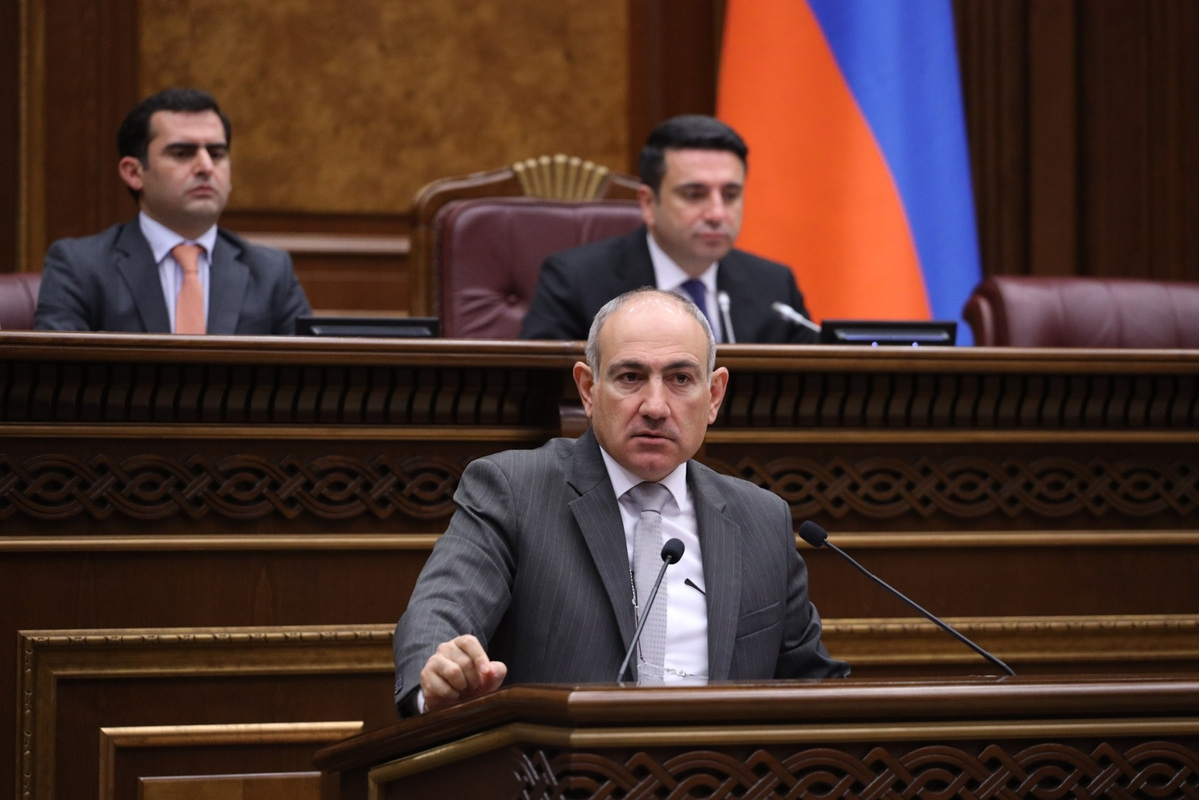Armenian Prime Minister Nikol Pashinyan has reiterated his determination to sign a peace treaty with Azerbaijan, emphasizing that Armenia has been working daily toward this goal and will continue to do so, Azernews reports.
Commenting on opposition claims that they would invalidate the Washington accords if they come to power, Pashinyan said at a press briefing after the Cabinet meeting:
“I don’t want to say peace or war, I will say it more mildly – between peace and not peace. And this is why I clearly said in my Monday address that this peace needs everyday care, and this is something we must all do together, each in their place, including the citizens, while making up their stance in politics.”
Pashinyan also highlighted Armenia’s readiness to simplify border checkpoint procedures under the framework of the five principles enshrined in the Washington accords – territorial integrity, sovereignty, jurisdiction, inviolability of borders, and reciprocity. He said:
“The Washington accords clearly stipulate the five principles that this agreement is based on…Upon presenting the Crossroads of Peace project, we had already said that we are ready for regulations, simplifications based on these principles.”
He added that Armenia plans to introduce modern procedures at its borders, including the use of biometric passports and digital technologies, noting:
“The methods where you have to pat down people won’t exist in all countries, including in all borders of Armenia, in 5, 10 or 15 years. And we will go for simplifications. But we will make these simplifications not only in the Armenian-Azerbaijani border checkpoints, but all other checkpoints as well, in order to maximally facilitate the business environment, exports, imports and transit, which is the most convenient and important environment for business in any case. We are ready for any simplification that fits into the framework of the five principles.”
On constitutional matters related to the peace treaty, Pashinyan stressed that he would initiate amendments if the Constitutional Court finds the agreement unconstitutional. He said:
“During the ratification process, if our Constitutional Court decides that the peace agreement which has been initialed now and would be subsequently signed, contradicts the Constitution, I myself would initiate constitutional changes.”
He also clarified the timeline for Armenia’s new constitution, noting:
“We are now working on the draft of the new constitution. When it is ready, we will hold a referendum. But this has nothing to do with this process [peace process with Azerbaijan]. However, it could have an impact on this process from a strategic perspective.”
The statements come after an initial peace agreement that was reached during a summit hosted by U.S. President Donald J. Trump, attended by Azerbaijani President Ilham Aliyev and Armenian Prime Minister Nikol Pashinyan on August 8th, 2025.
The leaders endorsed a joint declaration outlining a seven-point framework that emphasises sovereignty, territorial integrity, and the renunciation of force.
Foreign ministers from both nations initialled a draft “Agreement on Establishment of Peace and Inter-State Relations” in the presence of Trump, Aliyev, and Pashinyan. U.S. Secretary of State Marco Rubio described the accord as a “historic advance towards lasting peace.”
A key feature of the agreement is the establishment of the “Trump Route for International Peace and Prosperity” (TRIPP), also referred to as the Zangezur Corridor — a transit route through Armenia’s Syunik province connecting mainland Azerbaijan with its Nakhchivan exclave.

